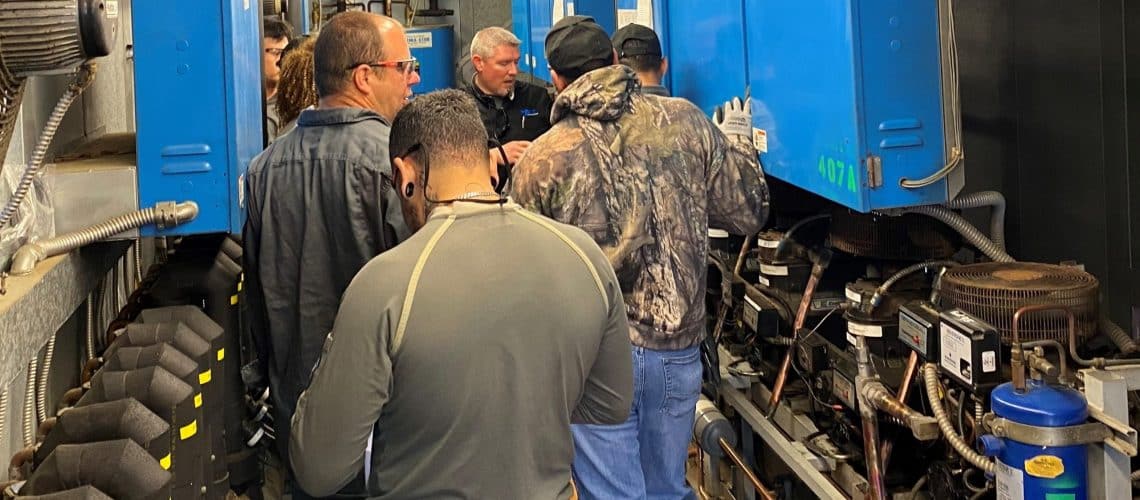Why Training Is Important When Dealing with Natural Refrigerants

The well-documented and ongoing battle against climate change is leading to increased regulation of the refrigeration industry pushing customers to switch from the use of HFCs as refrigerants to more eco-friendly alternatives, such as natural refrigerants. For example, the use of alternative refrigerants is also heavily driven by the existing and upcoming refrigeration regulations set by different environmental agencies, such as CARB, EPA-SNAP, and DOE, all aiming to limit the use of synthetic refrigerants labeled as harmful to the environment.
In the food retail industry, a sector that has been heavily impacted by these regulations, the adoption of natural refrigerants is becoming more like a necessity rather than just a viable option. However, the widespread adoption of natural refrigeration systems has been hampered by higher upfront costs, limited data, and a shortage of qualified refrigeration technicians.
Barriers to Adoption
While it is clear the demand for natural refrigeration systems in the food retail industry is slowly rising, many grocers still have some reservations about turning to this alternative mainly due to barriers, such as cost, scarcity of technicians, and limited knowledge of sustainable refrigeration systems’ overall impact on the operation. When it comes to the cost hurdle, there are several natural refrigeration system solutions that are worth the investment and will give retailers long-term, cost-efficiency benefits over and above those provided by traditional systems. Still, a shortage of qualified technicians for working with natural refrigerants continues to be a major concern. That is why training and recruitment are critical to addressing this issue.
Importance of Training
Training, upskilling, and certification programs will play an important role in the future of natural refrigerants in the food retail landscape. Due to the unique properties and characteristics of natural refrigerants, only qualified and certified technicians are allowed to work with them. Training provides an avenue for existing refrigeration technicians to learn new skills, help bridge the knowledge gap and gain hands-on experience that will, in turn, make technicians more efficient and expert at their job.
ROI on Training
The benefits of investing in training for refrigeration technicians will have a significant impact on food retailers in the long run. Aside from the fact that training offers technicians new skills and knowledge, it also allows retailers to retain their most talented employees and recruit new ones, especially those in the younger generation who are interested in careers in the refrigeration industry. Moreover, using training and certification as employment perks will give technicians a cutting-edge advantage since certified technicians are more valuable and in demand in the refrigeration workforce than those who are not.
As with many different industries, training employees proves to be an effective way of improving overall organizational operation as well as reducing inefficiencies in the workforce; the effects of training in the food retail sector are no different. Despite the many challenges that we face in the industry, such as the shortage of technicians and the adoption of natural refrigeration systems, we believe that training and education are the basis for overcoming these issues.